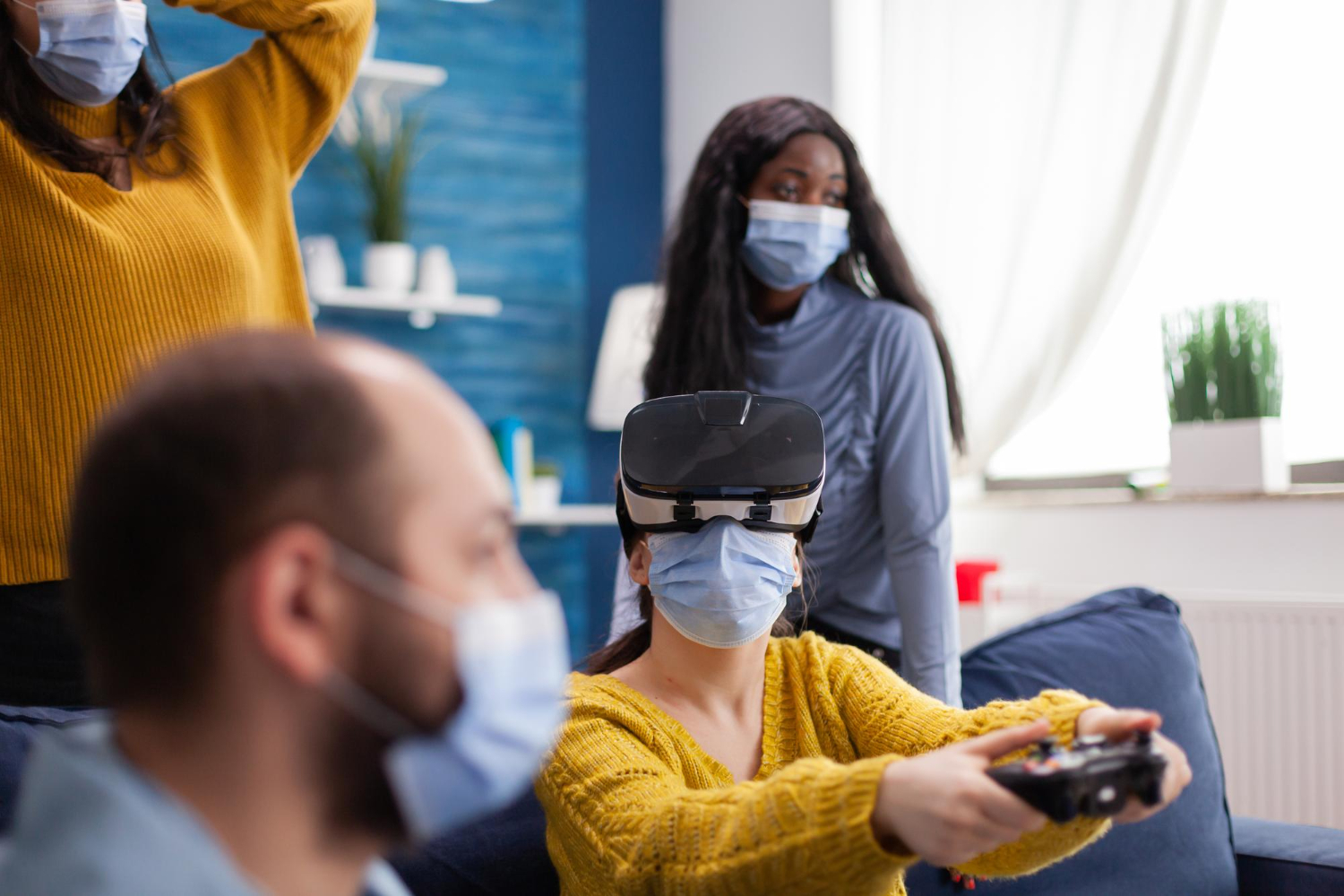
Revolutionary VR Technology for Neurodivergent Individuals
The Tennessee Department of Disability & Aging (DDA)’s Enabling Technology Program has made a groundbreaking decision by approving Medicaid reimbursement for Floreo’s virtual reality therapy platform. This pioneering move positions Tennessee as a leader in innovative autism care, providing neurodivergent youth and adults with unprecedented access to cutting-edge VR-based therapeutic interventions through TennCare.
Virtual reality therapy represents a paradigm shift in how we approach skill development for individuals with autism spectrum disorders and other developmental disabilities. Unlike traditional therapy methods, VR creates controlled, repeatable environments where users can practice essential life skills without real-world consequences or anxiety-inducing pressures.
The Floreo platform specializes in developing social, behavioral, and daily living skills through immersive virtual scenarios. Participants can practice navigating complex social situations, workplace interactions, public transportation systems, and classroom environments—all within a safe, supportive digital space that adapts to their individual learning pace and comfort level.
Medicaid Coverage Details and Accessibility
This statewide approval represents a significant milestone in autism care accessibility. Tennessee’s decision to include VR therapy under Medicaid coverage removes financial barriers that previously prevented many families from accessing innovative therapeutic technologies.
Approved Waiver Programs
The Medicaid reimbursement covers Floreo’s services through several essential waiver programs designed to support individuals with disabilities in community-based settings:
- 1915(c) Home and Community-Based Services (HCBS) Waiver: Enables individuals to receive therapeutic services in familiar, comfortable environments rather than institutional settings
- Employment and Community First (ECF) CHOICES: Focuses on vocational development and community integration for working-age adults
- CHOICES Long-Term Services and Supports Program: Provides comprehensive support for individuals requiring ongoing assistance with daily activities
Participating Managed Care Organizations
Floreo’s VR therapy platform is now accessible through all three of Tennessee’s Medicaid managed care organizations:
- Wellpoint: Previously approved Floreo under their ECF CHOICES program
- BlueCare: Now offering comprehensive VR therapy access
- UnitedHealthcare: Expanding their assistive technology offerings
Tennessee’s Innovation in Disability Services
Tennessee has consistently demonstrated commitment to innovative disability services and assistive technologies. Milton Neuenschwander, State of Tennessee DDA Enabling Technology Director, emphasizes that “Virtual reality isn’t just a technological gadget—research suggests it’s an innovative tool with tremendous potential to help people with neurodivergence gain confidence in building the skills they need to live healthy and successful lives.”
This philosophy reflects Tennessee’s broader vision of creating an inclusive society where all residents have access to individualized technology solutions that promote independence, employment opportunities, and community participation.
Previous Grants and Strategic Partnerships
Tennessee’s investment in VR therapy technology began several years ago with strategic initiatives:
2023 Tennessee Innovation Grant: Floreo received funding to develop customized VR curriculum specifically focused on:
- Public transportation navigation skills
- Workplace competency development
- Job interview preparation and social workplace interactions
Medicaid Alternative Pathways (MAPs) Initiative: This program specifically targets young adults transitioning from educational settings to independent living, providing crucial support during this challenging life phase.
Floreo’s FDA Recognition and Clinical Research
Floreo achieved a historic milestone in 2023 by becoming the first VR autism technology to receive the Food and Drug Administration’s breakthrough device designation. This recognition validates the platform’s therapeutic efficacy and safety profile.
The technology is supported by extensive clinical research conducted in partnership with prestigious institutions:
- Center for Autism Research at Children’s Hospital of Philadelphia: Conducting comprehensive studies on VR therapy effectiveness
- National Institutes of Health: Providing research backing for evidence-based VR interventions
- Multiple peer-reviewed studies: Demonstrating improved outcomes when VR therapy augments traditional therapeutic approaches
Transforming Lives Through Virtual Reality
VR-based autism therapy offers unique advantages that traditional methods cannot replicate. The technology creates immersive, interactive experiences that allow repeated practice of challenging scenarios without real-world risks or social pressures.
Vijay Ravindran, CEO of Floreo, states: “Tennessee’s investment in and embrace of enabling technologies reflects not just progress in service delivery, but a broader vision for a more modern, equitable system of care. This new credential builds on our existing work in the state to offer accessible, immersive VR therapy at scale.”
The platform addresses critical skill areas including:
- Social communication: Practice conversations, eye contact, and appropriate social responses
- Workplace readiness: Multi-tasking, following instructions, and professional interactions
- Academic participation: Classroom behavior, raising hands, and peer interactions
- Community navigation: Public transportation, shopping, and safety awareness
Future Implications for Autism Care
Tennessee’s approval of Medicaid VR therapy coverage sets a precedent that other states may follow. This decision demonstrates how innovative technologies can be successfully integrated into existing healthcare systems while maintaining cost-effectiveness and therapeutic validity.
The move toward technology-enhanced autism interventions represents a significant shift in how we conceptualize disability services. By embracing virtual reality as a legitimate therapeutic tool, Tennessee is helping to normalize the use of advanced technologies in healthcare and establishing new standards for neurodivergent care.
As more research validates VR therapy’s effectiveness and more individuals experience its benefits, we can expect broader adoption across the United States. Tennessee’s leadership in this area positions the state as a model for other regions considering similar assistive technology initiatives.
This groundbreaking approval will help more Tennesseans navigate daily life with greater confidence and autonomy, ultimately promoting independence and improving quality of life for neurodivergent individuals and their families throughout the state.
Discover the latest GovHealth news updates with a single click. Follow DistilINFO GovHealth and stay ahead with updates. Join our community today!

